Research Article
Issue Reviewers
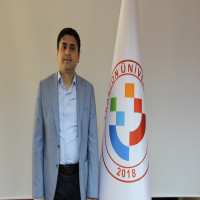
2009 yılında KTÜ Fatih Eğitim Fakültesi Sınıf Öğretmenliği alanında lisans derecesini aldı. Aynı yıl Artvin ili Murgul ilçesine sözleşmeli sınıf öğretmeni ve 2010 yılında Rize’nin Güneysu ilçesine kadrolu sınıf öğretmeni olarak atandı. 2012 yılında Recep Tayyip Erdoğan Üniversitesi Sınıf Öğretmenliği Bilim Dalı’nda yüksek lisans ve 2021 yılında Trabzon Üniversitesi Sınıf Öğretmenliği Bilim Dalı’nda doktora derecesini aldı. 2016-2021 yılları arasında Trabzon Üniversitesi Lisansüstü Eğitim Enstitüsü’nde araştırma görevlisi ve 2021-2024 yılları arasında Trabzon Üniversitesi Teknoloji Transferi ve Proje Yönetimi Uygulama ve Araştırma Merkezi'nde öğretim görevlisi olarak görev yaptı. 2024 yılından itibaren Trabzon Üniversitesi Fatih Eğitim Fakültesi Temel Eğitim Bölümü'nde öğretim üyesi olarak görev yapmaktadır. Sınıf öğretmenliği alanında yayınları bulunan araştırmacı özellikle kapsayıcı eğitim ve farklılaştırılmış öğretim gibi öğretim ilke ve yöntemleri alanında çalışmalar yapmaktadır.

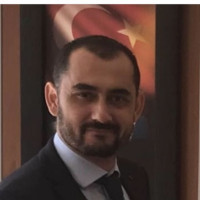

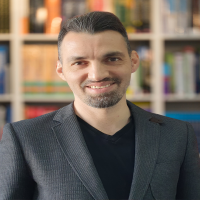

Doç. Dr. Funda Dağ, Kocaeli Üniversitesi Eğitim Fakültesi Eğitim Bilimleri Bölümü Öğretim Teknolojileri Anabilim Dalı’nda öğretim üyesidir. Temel araştırma alanı yapay zeka ve eğitim etkileşimi üzerine odaklanmakta olup, öğretim teknolojileri alanındaki çalışmaları dijital okuryazarlık, bilgi işlemsel düşünme ve eğitimde teknoloji entegrasyonu konularını kapsamaktadır. Ulusal ve uluslararası düzeyde çeşitli yayın ve projeleri bulunan Dağ, gelişmekte olan teknolojilerin pedagojik potansiyellerini inceleyen disiplinlerarası araştırmalarda aktif rol almaktadır.




Nadir Çeliköz 1966 yılında Çorum'da doğdu. Sırasıyla İnkılap ilkokulunu, Atatürk Ortaokulunu ve Çorum Lisesini bitirdi. Lisans eğitimini Gazi Üniversitesinde (EPÖ), Y Lisans Eğitimini Ankara Üniversitesinde (EPÖ) ve Doktora Eğitimini ise Hacettepe Üniversitesinde (EPÖ) tamamladı.1991-1992 eğitim-öğretim yılında Çankırı Anadolu Öğretmen Lisesinde bir yıl Meslek Dersleri öğretmenliği görevinde bulundu. 1992 yılında Ankara Üniversitesinde Yüksek Lisansa başlarken, aynı yıl Gazi Üniversitesi Teknik Eğitim Fakültesi Eğitim Bilimleri Bölümünde de Araştırma Görevlisi olarak göreve başladı. Gazi Üniversitesinde yaklaşık on yıl araştırma görevliliği ve beş yıllık öğretim görevliliği deneyimlerinden sonra 2005 yılında, Selçuk Üniversitesi Mesleki Eğitim Fakültesine Yardımcı Doçent olarak atandı. Selçuk Üniversitesinde Eğitim Bilimleri Bölüm Başkanlığı, Eğitim Teknolojisi Anabilim Dalı Başkanlığı, Dekan Yardımcılığı, Enstitü Müdür Yardımcılığı, Ölçme-Değerlendirme Fakülte Kurulu Başkanlığı, Öğretmenlik Uygulaması Fakülte Koordinatörlüğü gibi görevlerde bulundu. 2012 Yılında Doçent olan Çeliköz, 2013 yılından itibaren YTÜ Eğitim Fakültesi Eğitim Bilimleri Bölümü EPÖ Anabilim Dalında çalışmaktadır. Ulusal ve uluslararası indekslerde taranan çok sayıda eseri (kitap, makale, bildiri) bulunan Çeliköz, 2015 yılında "Ülkemizin en başarılı 2000 bilim insanı listesinde" de yer almıştır. Halen Yıldız Teknik Üniversitesinde kadrolu profesör olan Çeliköz 2017-2018 yıları arasında Kırgızistan Türkiye Manas Üniversitesi’nde bir yıl misafir öğretim üyesi olarak da görev yapmıştır.
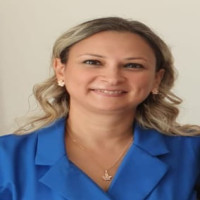

Prof. Dr. Selçuk Bora Çavuşoğlu, 2001 yılında Pamukkale Üniversitesi Beden Eğitimi ve Spor Öğretmenliği bölümünde lisans eğitimini tamamlamıştır. 2007 yılında Marmara Üniversitesi Gazetecilik ve Halkla ilişkiler bölümünde yüksek lisans ve 2011 yılında yine aynı üniversitede Halkla İlişkiler doktora programını tamamlamıştır.
Akademik hayatına 2004 yılında İstanbul Üniversitesi, Beden Eğitimi ve Spor Yüksek Okulunda Okutman olarak başlamıştır. 2012-2019 yılları arasında yine aynı üniversitede Doktor Öğretim Üyesi ve 2019 yılında Doçent, 2024 Yılında Profesör unvanını alarak olarak İstanbul Üniversitesi - Cerrahpaşa, Spor Bilimleri Fakültesi, Spor Yönetim Bilimleri Anabilim Dalında görevine devam etmektedir.
2012-2018 yılları arasında İstanbul Üniversitesi Spor Yöneticiliği bölümünde Bölüm Başkanı Yardımcısı olarak idari görevine başlamıştır. Aynı üniversitede 2016-2018 yılları arasında Kalite Koordinatör Yardımcısı, 2016-2018 yılları arasında Merkez Müdür Yardımcılığı ve Kalite Kurulu Üyeliği, 2018 yılında Anabilim Dalı Başkanı ve Bölüm Başkanı olarak görevine devam etmektedir. Prof. Dr. Selçuk Bora Çavuşoğlu, ayrıca 2019 yılında Dekan Yardımcısı olarak da idari görev yapmıştır.
2012 yılında beri halen Beşiktaş Jimnastik Kulübünde Kongre Üyesi, 2016 yılından beri halen Türkiye Triatlon Federasyonu eğitim ve Bilim Kurullarından Sorumlu Yönetim Kurulu Üyesi, 2022-2024 Akdeniz Ülkeleri Triatlon Federasyonu Organizasyon Komitesi Başkanı ve Akdeniz Ülkeleri Triatlon Federasyonu Delegesi, 2024'den beri halen Akdeniz Ülkeleri Triatlon Federasyonu Akreditasyon Kurulu Üyesi ve Akdeniz Ülkeleri Triatlon Federasyonu Delegesi görevlilerine devam etmektedir. 2019-2020 yılları arasında Türkiye Futbol Federasyonunda Temsilci ve Türkiye Milli Olimpiyat Komitesinde Fair Play Komisyonu Üyesi olarak görev almıştır.
Çeşitli bilimsel dergilerde, uluslararası ve ulusal kongrelerde yayınlanmış araştırmaları ve kitap bölümleri bulunmaktadır. Ayrıca 2011 yılında ‘’Marka Yönetimi ve Pazarlama Stratejileri’’ kitabı, 2023 yılında Sporcularda Kişisel Gelişim ve Motivasyon kitapları yayımlanmıştır. Dr. Çavuşoğlu'nun ayrıca 10 dan fazla akademik kitapta editörlük görevleri bulunmaktadır.
Prof. Dr. Selçuk Bora Çavuşoğlu, Türkiye Ulusal Ajansı tarafında da desteklenen K182 Personel Hareketliliği Avrupa Birliği Projeleri olan ''Triatlon Çocuklara sevdiriyoruz ve Sporun Renkleri Kültürün Dokusu projelerinin de koordinatörlüğünü yapmaktadır.
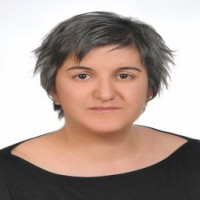
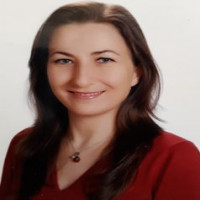
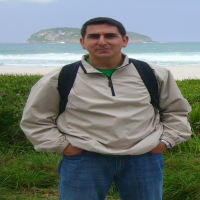
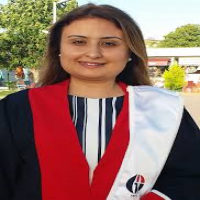
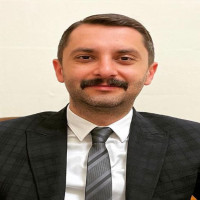
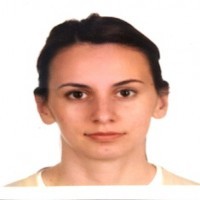
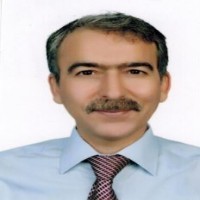
Özgen Korkmaz is a professor at the Faculty of Engineering and Natural Science at Bandırma Onyedi Eylül University. Dr. Korkmaz's area of expertise is educational technology. His research interests include computer education, programming education and thinking skills. He is also an expert in scale development.
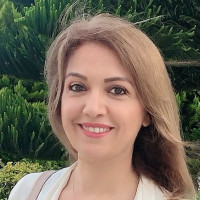
Aim & Scope
Journal of Education and Future - JEF (ISSN 2146-8249) is an international, interdisciplinary and peer-reviewed journal published by Nesibe Aydın Education Institutions in Ankara / Turkey. JEF has been published biannually in January and July since 2012. The language of JEF is English.
JEF aims at contributing to increase of quality of future’s education and knowledge generation in the light of developments in every field today.
JEF is an academic journal in which articles, based on unique researches related to educational sciences’ all fields of preschool, elementary education, secondary education, undergraduate education, graduate education is published. It has been paid attention for JEF to have an international quality from its first issue and an interdisciplinary approach has been accepted as a basis. The official language of the journal is English and all manuscripts include Turkish summary.
Author Guidelines
Article Application Process:
Your article must be prepared according to the article template,
Your article must be checked and signed according to the Candidate Article Checklist,
Copyright and Author Agreement must be signed,
The article must be an original research article,
The "Ethics Committee Document" of your research must be attached,
The entire article must consist of a maximum of 6 thousand words,
The entire article must be written in English,
The Turkish version of the article must also be uploaded as a separate document,
The ORCID Number of all authors must be specified,
The plagiarism (similarity) rate of the article (excluding references, including citations) must be less than 15% (the similarity report is not expected to be uploaded.).
Article Printing Process
When the evaluation process of your article is completed and deemed suitable for publication, a language control document is requested. The language control document, which is proofread, is expected to be approved by a professional translation office.
Before your article is published, the author(s) will check it one last time and ask for your approval.
Articles that have completed the evaluation, control and approval processes are made available for access as early view and are printed in the issue to be published at the earliest date.
Ethical Principles and Publication Policy
PUBLICATION ETHICS
Each study sent to JEF is subject to plagiarism checks during the preliminary review process. Accordingly, studies with a similarity rate of over 15% in the preliminary review conducted by JEF editors are not evaluated.
JEF is based on the obligations determined by COPE (Code of Conduct for Journal Editors) regarding publication ethics and misconduct for editors, authors and referees in journal publishing.
RESPONSIBILITIES OF EDITORS
JEF editors are responsible for the content and publication quality of the journal and have the right to negotiate with referees when making publication decisions in this context. The JEF editor-in-chief and editors comply with the following principles during the evaluation process within the framework of scientific and academic acceptances:
1. Impartiality and publisher freedom: Editors evaluate submitted article proposals by taking into account their suitability for the scope of the journal, the importance and originality of the work. Editors do not take into account the race, gender, sexual orientation, ethnicity, nationality or political views of the author/s submitting the article proposal. Other institutions than the journal editorial board cannot influence the decision to correct or publish.
2. Confidentiality: Editors do not share information about a submitted manuscript with anyone other than the corresponding author, referees, and the editorial board.
3. Disclosure and disagreements: Editors and editorial board members do not use unpublished information presented in a submitted manuscript for their own research purposes without the express written permission of the authors.
4. Publishing decision: Editors ensure that all manuscripts accepted for publication are peer-reviewed by at least two expert referees in the field. Editors are responsible for deciding which work to publish from the submitted manuscripts, based on the validity of the work in question, its importance to researchers and readers, the comments of the referees, and other legal requirements.
5. Ethical concerns: Editors will take measures when ethical concerns arise regarding a submitted manuscript or published article. Any reported unethical publishing behavior, even if it occurs years after publication, will be investigated. Editors follow COPE Flowcharts in case of ethical concerns. If ethical issues are significant, corrections, retractions may be applied or concerns about the subject may be published in the journal.
REVIEWER DUTIES
1) Contribution to the review process: Assists editors in the review process and helps authors improve their articles through editorial communication.
2) Time: A reviewer who believes that the article referred for review is not related to his/her area of expertise or that he/she cannot complete the article review in a timely manner should inform the editors as soon as possible and decline the review invitation. This will ensure that a new reviewer is assigned. Reviewers must evaluate the article they have accepted for review within the time limit.
3) Confidentiality: All article proposals sent for preliminary review are confidential documents and should be considered as such. They should not be shown or discussed with others unless authorized by the editor. This also applies to reviewers who decline the review invitation.
4) Impartiality standards: Comments on the article proposal should be made impartially and suggestions should be offered in a constructive manner to help the authors improve the article. Personal criticisms directed at authors are not appropriate.
5) Acknowledgement of sources: Reviewers should identify relevant published studies not cited by the authors. The reviewer should also inform the editor of any significant similarity between the reviewed article and any other article (published or unpublished).
6) Conflicts of interest: Reviewers should decline to review the article and inform the editors if they understand that there is a conflict of interest/conflict of interest.
RESPONSIBILITIES OF AUTHORS
1) An article submitted to JEF must be original and the author(s) must undertake that the article is an original study that has not been published in any journal before.
2) When applying for publication of their article in JEF, the author(s) must upload all the documents specified in the application conditions to DergiPark in a complete, complete and approved manner.
3) The data used in the research should be presented meticulously in the article. A study should include sufficient detail and source information. Fraudulent and deliberately false statements are unacceptable as they may lead to unethical situations.
4) Authors must meticulously comply with the journal template, writing rules, and academic writing standards. In this context, they must make changes requested by the referee, editor, or editor-in-chief in a timely and meticulous manner.
5) Names of people who did not contribute to the article should not be written as authors, and it should not be suggested to change the order of authors, remove authors, or add authors to an article submitted for publication.
6) Authors must correctly cite the sources they use during the writing of the article in accordance with ethical principles.
7) Authors must indicate that they have received ethics committee approval for research requiring data collection with quantitative or qualitative methods such as experiments, surveys, scales, interviews, observations, focus groups, etc. that require an ethics committee decision; the ethics committee name, decision date, and number must be stated on the first and last pages of the candidate article and in the method section, and the document showing the ethics committee decision must be uploaded to the system together with the application of the article. In addition, information regarding the receipt of an informed consent/approval form in case reports must be included in the article.
8) Authors must provide evidence in the article that they have taken care of ethical principles during the data collection process (such as obtaining permission from others to use their documents such as scales, surveys, photographs). Articles must state that research and publication ethics and copyright regulations for intellectual and artistic works have been complied with. If the research was conducted on human and animal subjects, it must be stated that the research was conducted in accordance with international declarations, guidelines, etc.
9) Authors should not publish the text describing the same research in more than one article. It is unethical to submit the same study text to more than one journal at the same time.
10) When author(s) notice an error in a published article, they must contact the editor to inform, correct or retract it. When a new issue is published through the JEF DergiPark system, requests for changes must be made within 5 days from the date the journal is published.
Price Policy
No fee is charged during the article application or publication process in JEF.
Indexes
Citation Indexes
Journal Boards
Baş Editör / Editor-in-Chief
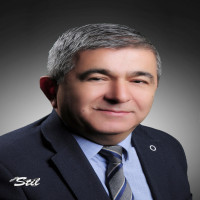
Editör Yardımcısı / Editor Assistant
Yayın ve Danışma Kurulu / Editorial Board
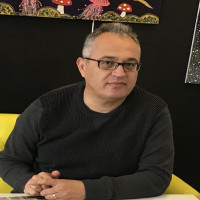

If necessary, you can send an e-mail to jef.editor@gmail.com to contact the editor-in-chief.










